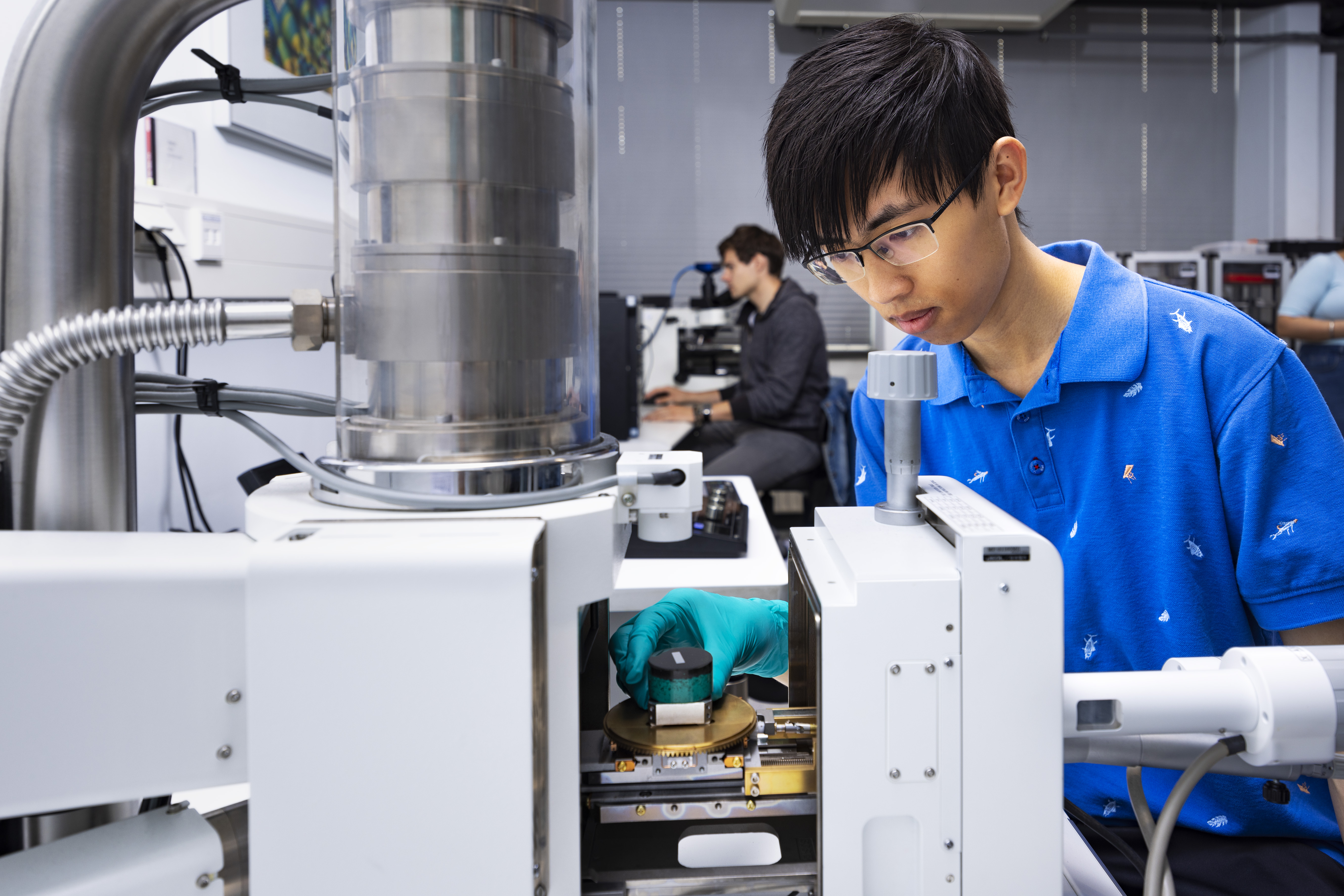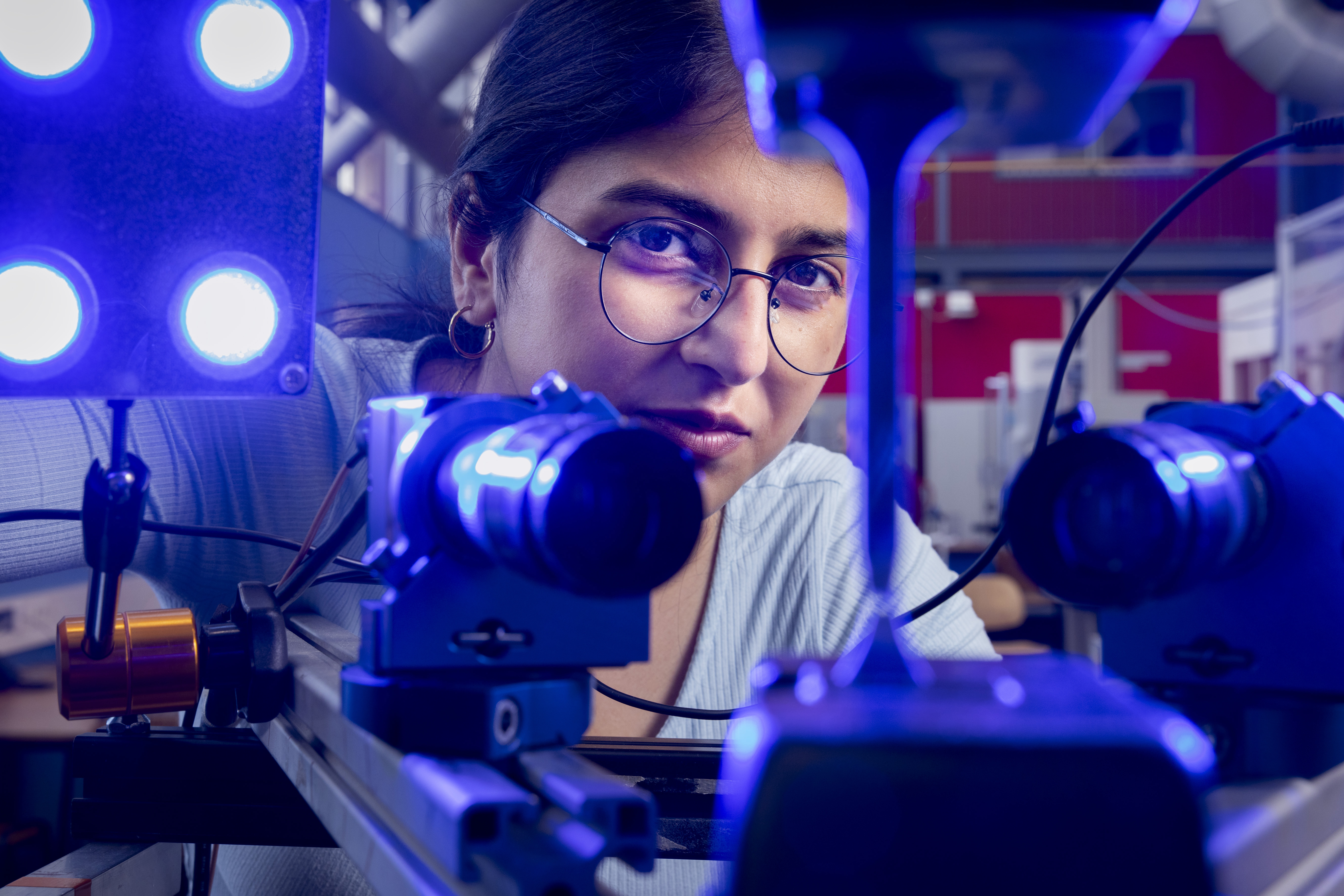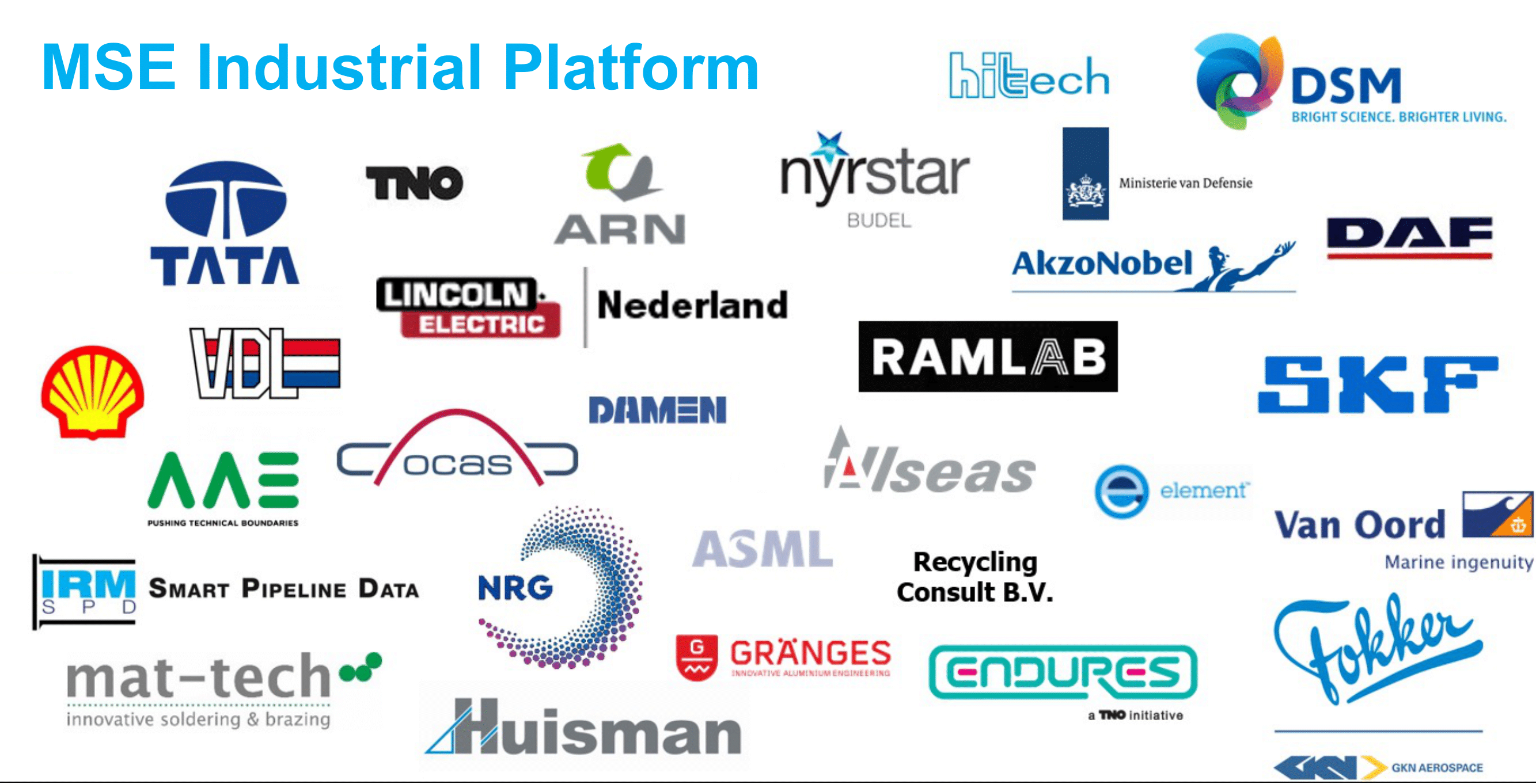Research
The Department of Materials Science and Engineering is dedicated to conducting internationally recognized, high-quality materials research that brings valuable contributions to both industry and society. Our research approach is grounded in physics, exploring the material lifecycle, structure, properties, and functionality.
In addition to our research endeavours, we are committed to delivering top-tier education in materials science and engineering to our graduates and post-graduates. To achieve this, we have meticulously designed a comprehensive program aimed at equipping them with the knowledge and skills needed to confidently address both current and future technological and societal challenges with expertise and ingenuity. Read more about the research themes of the department.
Facilities
The Department of Materials Science & Engineering has a large collection of state-of-the-art equipment for teaching and research, for example:
- Optical microscopes, including a confocal microscope, with the necessary preparation facilities. These are used to study material microstructures during practical's and for actual research. The course Characterisation of Materials pays attention to optical microscopy.
- Surface analysis equipment includes a Scanning Electron Microscope (SEM), microprobe, Auger, and X-ray photoelectron spectroscopy (XPS). The principles of the underlying techniques are taught in the courses Characterisation of Materials and Advanced Characterisation.
- Diffractometers (XRD) to determine crystal structure, texture and perform stress measurements. The basics of this technique are taught in the Characterisation of Materials course.
- Thermomechanical simulators (Gleeble) in which specific temperature and mechanical loading can be applied. These methods are used to study microstructure evolution and simulate processes like welding, rolling, etc. These processes are explained in the courses of Metals Science, Steel Science, Processing of Materials, and Joining Technologies.
- Mechanical testing equipment (both electromechanical and hydraulic) for performing tensile, bending, fracture mechanical, and fatigue tests. The basic concepts of these tests are explained in the courses Mechanical Behaviour of Materials and Science of Failure.
- Electrochemical testing equipment for evaluation of the electrochemical properties of materials and study of degradation processes(corrosion). Related modules are Characterisation of Materials, Corrosion Engineering and Corrosion Science.
Cooperation
Much of the research in the department Materials Science & Engineering is performed in collaboration with industry. This provides ample opportunities for our students to do external research project (internships) or master projects directly with the industry or within established collaborations between the MSE department and the industry. The Materials Science & Engineering department has the so called “MSE Industrial Platform”. This platform is a consortium of companies that engage in long-term collaboration with the department. The collaboration seeks to continue and further develop the field of materials science.


